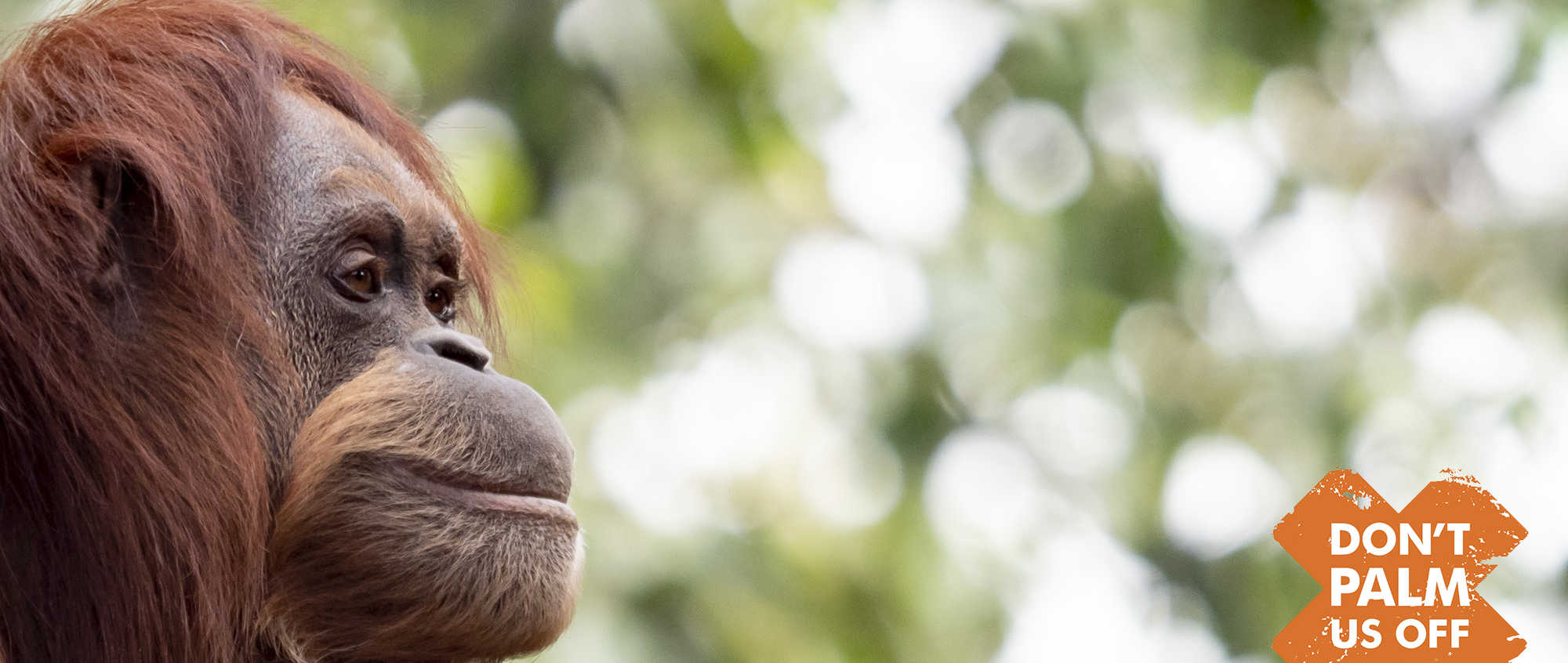Don't Palm Us Off
Many Australians are unaware of the hidden fats and oils in supermarket products and therefore may be unknowingly contributing to environmental destruction and putting the health of their families at risk.
Palm oil is linked to rapid loss of biodiversity when produced unsustainably. It is found in around 50 per cent of packaged foods at the supermarket but is mostly hidden under the guise of ‘vegetable oil’.

The campaign
Since 2009, Zoos Victoria has been campaigning to get labelling laws changed in Australia so that palm oil is no longer hidden as 'vegetable oil' or any other names on the products you buy.
So far, more than 470,000 Australians have spoken up for palm oil labelling through Don't Palm Us Off and you can too!
By having mandatory labelling of palm oil on products, this will put the power back into the hands of consumers who will have the choice to buy products containing certified sustainable palm oil.
This will put pressure on manufacturers to clean up their act and only source 100% Segregated and sustainable palm oil as certified by the independent governing body the Roundtable on Sustainable Palm Oil (RSPO).
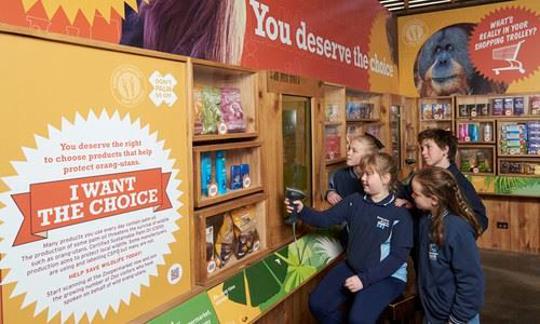
The facts
- Palm oil is in around 50 per cent of supermarket products.
- It is often disguised as "vegetable oil" so you may not know you're consuming it.
- Palm oil itself is not bad, but the unsustainable way that it's produced is destroying rainforest habitats in countries such as Indonesia.
- Mandatory palm oil labelling will put pressure on companies to start using sustainably-produced palm oil.
- The decision to introduce the mandatory labelling of oils in Australia rests with a group of Ministers who make up the Ministerial Forum on Food Regulation.
Tell your Minister that you want palm oil to be clearly labelled.
Because you have the right to know where that palm oil came from.
Choose your state or territory to send a message to your minister:
These are just some of the animals threatened by unsustainable palm oil farming
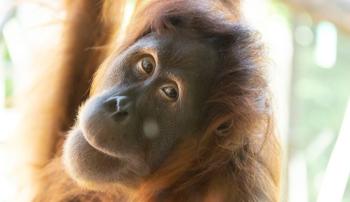
Orangutans
In their rainforest home in Sumatra, Indonesia, orangutans are no longer safe from harm. The habitat of these critically endangered apes is fast disappearing due to unsustainable palm oil products with farmers first burning the forests to the ground then clearing their trees to make way of oil palms.
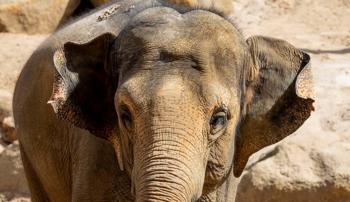
Asian Elephants
In the wild, these endangered animals can be found in south and southeast Asia. While many people associate ivory poaching with the loss of elephants, Asian Elephants are threatened by unsustainable palm oil plantations destroying their habitat as well.

Sumatran Tiger
Sumatran Tigers are the smallest of all tigers with their size assisting them to hunt through the dense, tropical forests of Indonesia which are sadly being destroyed by unsustainable palm oil plantations. With fewer than 400 of these breathtaking tigers left, there has never been a more important time to conserve their habitat.
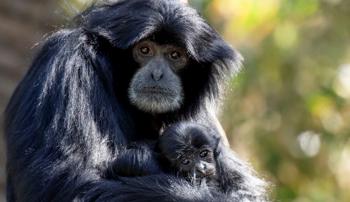
Gibbons
The beautiful songs of the gibbons could once be heard throughout southeast Asia but sadly they are becoming rarer and rarer. Habitat loss in both Indonesia and Malaysia due to the palm oil industry burning and clearing vast quantities of land is taking a drastic toll on gibbons.
Palm oil is in around 50% of supermarket foods, but Australian law does not require it to be labelled as an ingredient. You can choose any product made by the brands featured in this guide knowing they either use no palm oil at all or 100% Segregated Certified Sustainable Palm Oil, the choice is yours.

Frequently asked questions about palm oil labelling
So, shouldn't we just ask for palm oil to be banned?
Palm oil is not the enemy here, the way it's produced is what is the problem. Banning palm oil is not the best solution for the environment! When sustainably grown, palm oil is a highly efficient crop with a higher yield than other oil crops (meaning less land is required to produce palm oil than other oils).
A number of organisations including World Wildlife Fund and Zoos Victoria strongly believe that the palm oil industry can grow and prosper without destroying the habitats of orangutans, rhinos, tigers and elephants.
How is palm oil disguised on products?
Palm oil is most often referred to as “vegetable oil”. However, it is often also called any of these:
Vegetable Oil, Vegetable Fat, Palm Kernel, Palm Kernel Oil, Palm Fruit Oil, Palmate, Palmitate, Palmolein, Glyceryl, Stearate, Stearic Acid, Elaeis Guineensis, Palmitic Acid, Palm Stearine, Palmitoyl Oxostearamide, Palmitoyl Tetrapeptide-3, Sodium Laureth Sulfate, Sodium Lauryl Sulfate, Sodium Kernelate, Sodium Palm Kernelate, Sodium Lauryl Lactylate/Sulphate, Hyrated Palm Glycerides, Etyl Palmitate, Octyl Palmitate, Palmityl Alcohol
How will mandatory labelling make a difference?
Never underestimate the power of the consumer! If palm oil is clearly labelled on products then palm oil that has been sustainably sourced, known as Certified Sustainable Palm Oil (CSPO), will also be easier for consumers to find. This in turn will put pressure on food manufacturers to start using CSPO resulting in increased demand on palm oil suppliers to start growing CSPO.
Why does Zoos Victoria stock products containing palm oil?
Zoos Victoria only sells products from manufacturers that are either palm oil-free or use 100% segregated and traceable Certified Sustainable Palm Oil (CSPO) across their entire line or have made a time-bound commitment to switch to using this kind of palm oi. All individual products sold at our zoos are either palm oil-free or contain 100% segregated and traceable Certified Sustainable Palm Oil (CSPO). No products sold at our zoos contain any unsustainably-sourced palm oil.
For more information about the Don’t Palm Us Off campaign, contact the Conservation Campaigns team.
